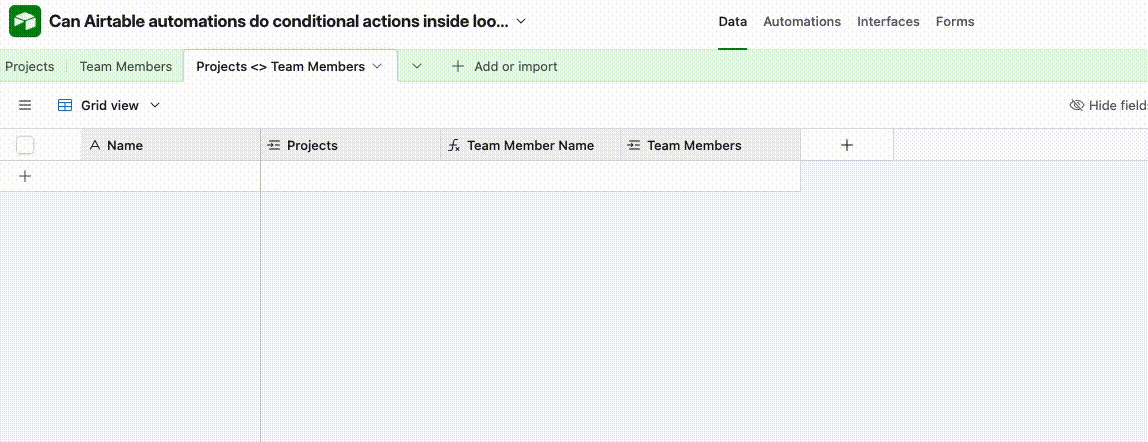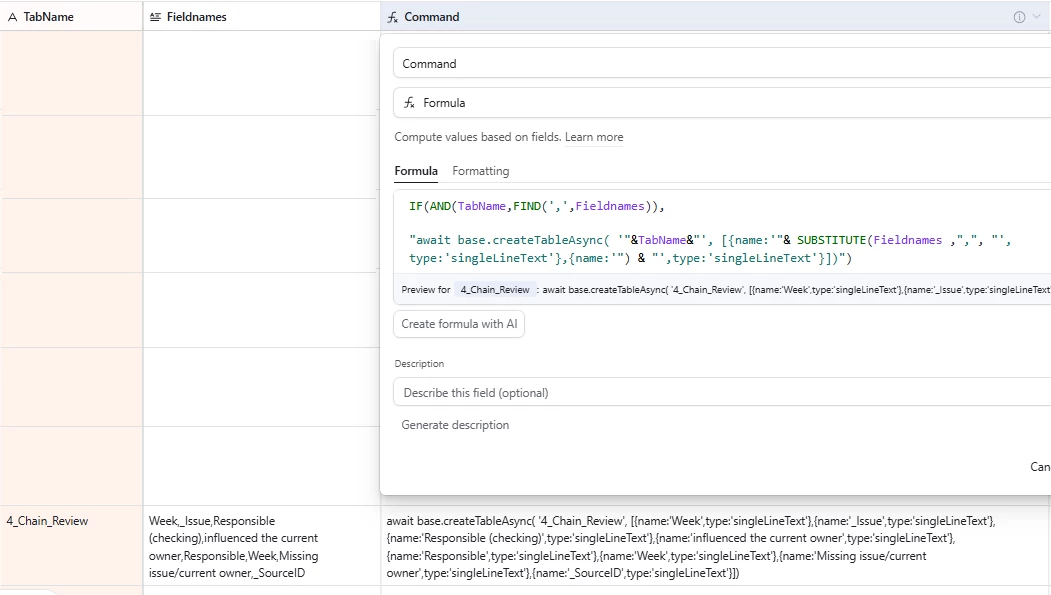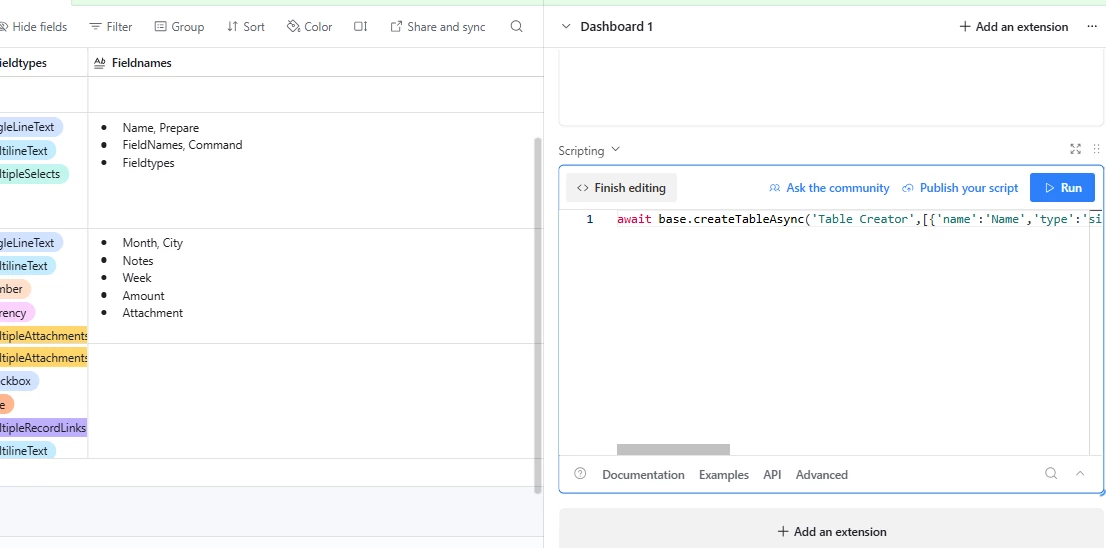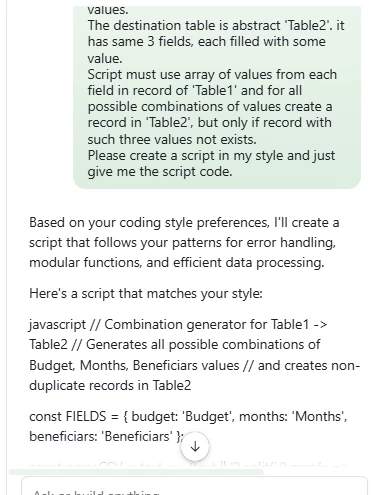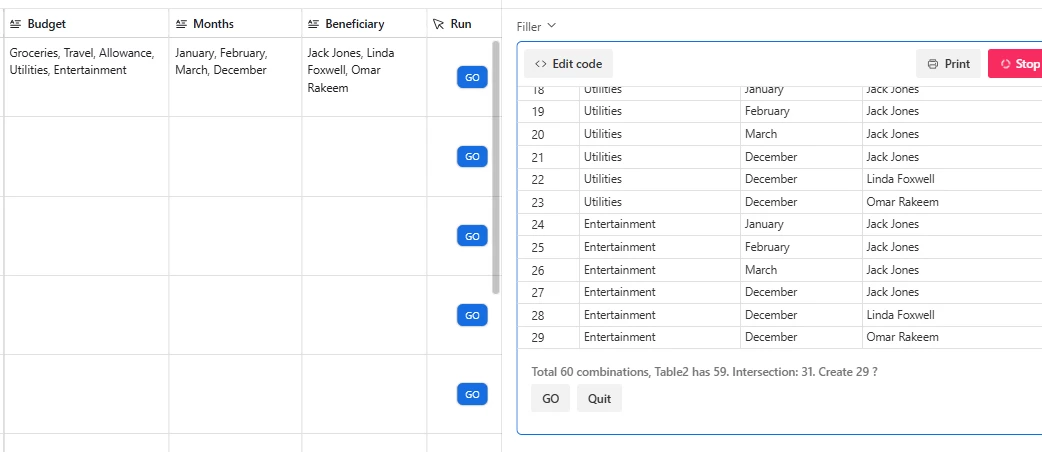Hi everyone!
I’m working on an automation that needs to create records based on two linked lists, for example:
- A list of projects
- A list of team members
Question 1:
Is it possible to have an automation that loops over the projects list and, inside that loop, creates records for team members only if the record doesn’t already exist? In other words, can I add a condition inside a repeating loop to check for existing records before creating new ones?
Question 2:
Is it possible to have nested loops in Airtable automations? Or are there any workarounds to loop over both projects and team members together to automatically create every combination without hardcoding?
Thanks so much for your help!


